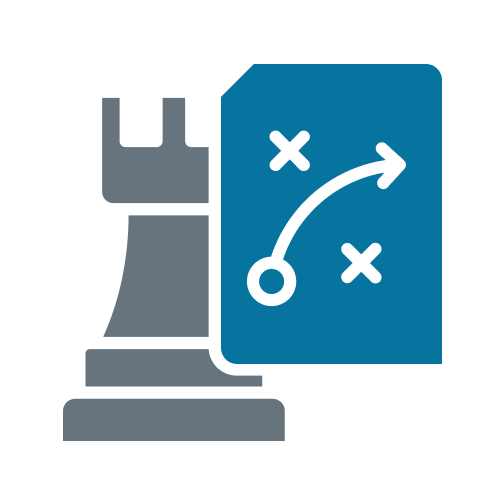Leadership is not about titles or positions. It’s about influence, impact, and execution. And if you’re serious about growing your leadership capacity or helping others do the same, then the question “what are the 7 leadership competencies” isn’t just academic—it’s essential. Knowing and intentionally developing these competencies can be the difference between managing a team and leading a movement.
The Importance of Developing Core Leadership Skills
In a volatile, uncertain, complex, and ambiguous world (VUCA), leaders are being called to more than just drive results. They must model resilience, cultivate trust, and shape culture. That’s why developing core leadership skills is no longer optional—it’s a strategic imperative. Leaders who stagnate fall behind. Teams sense it. Culture suffers. Results slide. But leaders who are intentional about growth? They create ripple effects of clarity, accountability, and momentum.
What Skills Do Great Leaders Have?
Great leaders blend soft power with hard execution. They know when to coach and when to call the play. They read the room and know when to disrupt it. They can move from the balcony to the dance floor—and back again. In essence, great leaders consistently demonstrate mastery across a set of foundational skills that allow them to show up, speak up, and step up. These are not just nice-to-haves. They are mission-critical.
Who Needs Leadership Skills?
Spoiler alert: everyone. Leadership is not the private domain of CEOs, presidents, or the extroverted few. Whether you’re leading a team, a project, a classroom, or your own life—leadership competencies matter. Front-line managers need them to galvanize their crews. Mid-level leaders need them to bridge strategy and execution. Executives need them to cast vision and carry culture. And entrepreneurs? They need every ounce of leadership muscle to build what hasn’t been built yet.
What Are the 7 Core Leadership Skills?
So, what are the 7 leadership competencies that separate contenders from pretenders? Here’s a breakdown, grounded in research and forged in the fires of real-world experience:
1. Emotional Intelligence (EQ)
EQ is the ability to understand and regulate your emotions while skillfully navigating the emotions of others. It’s the leadership x-factor. Without it, technical brilliance often becomes a liability. Leaders with high EQ create psychological safety, handle conflict constructively, and inspire trust—even under pressure.
2. Coaching and Developing Others
Leadership is not just about climbing the mountain—it’s about helping others climb theirs. Leaders who coach don’t hoard wisdom. They unlock it in others. They ask better questions, give timely feedback, and actively invest in people’s growth. Development isn’t a department—it’s a daily act of leadership.
3. Compelling Communication
Communication isn’t just about talking—it’s about making meaning. Great leaders know how to simplify the complex, clarify the fog, and connect the dots. They listen actively, speak authentically, and tailor their message to the moment. When they speak, people lean in—not because they have to, but because they want to.
4. Decision Making
In a world of competing priorities and constant change, leaders must be decisive. But good decisions don’t come from gut feel alone. Effective leaders synthesize information, weigh trade-offs, and consult wisely. They’re willing to commit in the face of ambiguity and course-correct without ego when needed.
5. Delegation and Empowerment
Trying to do it all is a recipe for burnout and bottlenecks. Great leaders know how to delegate with clarity and empower with trust. They don’t just offload tasks—they elevate ownership. This unlocks team capacity, builds confidence, and keeps the leader focused on what only they can do.
6. Execution
Vision without execution is hallucination. Competent leaders move the needle. They align people, priorities, and processes to deliver results. They create scoreboards, set clear expectations, and hold people accountable in a way that builds momentum—not fear.
7. Facilitating Change
Change is no longer an event—it’s the backdrop. Leaders who can’t navigate change will be left behind. Effective change leaders paint the picture of a better future, acknowledge the discomfort, and bring people along with empathy and energy.
+5 Hard Skills Every Leader Should Have
In addition to these 7 core leadership skills, there are hard skills that increase a leader’s effectiveness:
- Financial acumen – reading the numbers and making data-informed decisions.
- Project management – turning ideas into actionable plans.
- Technology fluency – leveraging tools to enhance collaboration and efficiency.
- Performance management – setting goals, tracking KPIs, and giving performance feedback.
- Strategic planning – zooming out to see the big picture and plot the course forward.
Top Leadership Personality Traits
While skills can be learned, certain traits amplify a leader’s effectiveness. Research and experience point to common traits among the best leaders:
- Self-awareness – knowing your strengths, blind spots, and triggers.
- Resilience – the ability to bounce back and stay grounded.
- Humility – open to learning and quick to give credit.
- Curiosity – always asking, “What am I missing?”
- Courage – willing to have the hard conversation and make the tough call.
How to Build These Skills
Knowing what the 7 leadership competencies is only the starting line. Growth requires a plan. Here’s how:
Learning Journeys
The most effective leadership development isn’t one-and-done. It’s a curated journey. Think immersive learning experiences, spaced repetition, stretch assignments, and real-time feedback loops. Learning must be contextual, experiential, and ongoing.
Coaching
Every great performer has a coach. Leaders should be no different. A good coach helps you see what you can’t see, say what you need to say, and become who you’re capable of being. Coaching accelerates self-awareness, accountability, and transformation.
How to Develop and Improve Core Leadership Skills
Here’s the truth: you don’t rise to the level of your goals—you fall to the level of your competencies. If you want to grow, lead, and make an impact, focus on building these seven core leadership skills:
- Start with a brutally honest self-assessment.
- Get feedback—from your team, peers, and coach.
- Pick one or two competencies to develop at a time.
- Practice them daily. Leadership is a muscle, not a title.
- Track your growth. Reflect. Refine. Repeat.
Frequently Asked Questions (FAQs)
What are the 7 leadership competencies?
The 7 leadership competencies are Emotional Intelligence, Coaching and Developing Others, Compelling Communication, Decision Making, Delegation and Empowerment, Execution, and Facilitating Change. These skills help leaders drive performance, build trust, and adapt to change effectively.
Why are leadership competencies important?
Leadership competencies are crucial because they equip leaders to inspire teams, navigate complexity, and achieve results. Without these competencies, leaders risk becoming ineffective in fast-moving and high-pressure environments.
How can I improve my leadership skills?
You can improve leadership skills through self-assessment, coaching, learning journeys, feedback loops, and deliberate practice. Focus on one or two competencies at a time and track your progress consistently.
What is the difference between leadership skills and competencies?
Leadership skills are specific abilities (like communication or decision-making), while competencies are broader clusters that include skills, behaviors, and attitudes necessary to lead effectively.
Can leadership competencies be learned?
Yes, leadership competencies can absolutely be learned. With the right mindset, tools, and practice, anyone can grow their leadership capacity over time.
Are leadership competencies the same in every industry?
The core leadership competencies are universal, but how they’re applied may vary depending on the industry or organizational culture.
What are examples of hard skills for leaders?
Hard skills for leaders include financial literacy, project management, strategic planning, data analysis, and technology fluency. These complement the 7 leadership competencies and enhance decision-making.
How do I know which leadership competencies I need to focus on?
Start with a self-assessment or 360-degree feedback to uncover your strengths and gaps. Prioritize the competencies that will have the greatest impact on your role or goals.
What is the most important leadership competency?
While all are vital, many experts agree that Emotional Intelligence is the foundational competency, as it underpins trust, resilience, and influence.
Why do some leaders fail despite having technical skills?
Because technical skills alone aren’t enough. Without leadership competencies like communication, decision-making, and emotional intelligence, even the most talented professionals struggle to lead others effectively.
What are the 7 Leadership Competencies? Conclusion
If you’ve been asking, what are the 7 leadership competencies that make the difference—now you know. But knowing isn’t enough. Leading with impact starts when you commit to becoming the kind of leader people choose to follow—not because they have to, but because they want to.
Ready to sharpen these competencies in yourself or your team? Let’s talk. Reach out here.










